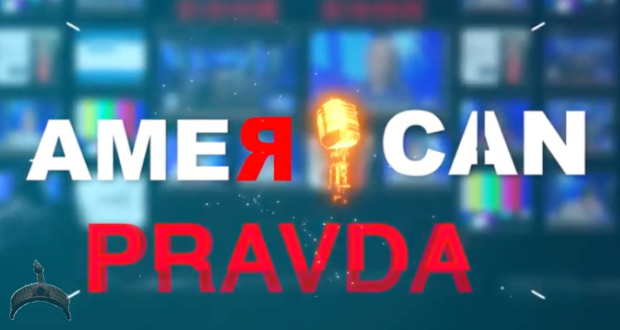Given hindsight, I’d consider myself satisfied with the ultimate outcome. The Review currently operates on an absolute shoestring while the editorial budget of TAC these days is an order-of-magnitude larger, covering the costs of a full-time staff of seven or eight. But according to Alexa.com our readership passed theirs six months ago, and has been substantially higher every week since. Possibly for these sorts of reasons, TAC recently named yet another new top editor, with Benjamin Schwarz becoming the third in eighteen months. And aside from providing some of the background to the creation of The Review and helping to explain its eclectic ideological focus, I think my story also serves as an example of why so many small publications tend to blur their editorial line over time, lured by mainstream respectability and resources, a process that seems to have recently claimed the late Alex Cockburn’s once fiercely-independent Counterpunch.
On June 12th, 2013 I was having an unusually lengthy phone conversation with Daniel McCarthy, editor of The American Conservative (TAC). I live in Silicon Valley, three thousand miles away from DC, and despite holding the nominal title of publisher my involvement with TAC business operations had usually been negligible, amounting to just a few minutes a week on the phone. But I had grown alarmed over the lack of any major new donations since January, and had begun urging McCarthy to make the cuts in expenses necessary for the publication’s survival, while lobbying the board on the same subject. Web traffic had also been sharply declining for six or seven months, suggesting the need for a change in editorial focus. And several months earlier, TAC had cut its print frequency in half to just six issues a year while doubling the annual subscription rate to $60, thus quadrupling the per issue cost to an unreasonable $10, a pricing decision I’d strongly questioned at the time and now believed we needed to reverse.
Despite my tradition of operational disengagement, I felt comfortable pressing these points. Since late 2006 I had provided some 70% of TAC’s total funding, and even after converting the publication into a non-profit in 2010, I had still remained TAC’s largest donor during 2012, while also serving as chairman. TAC had come close to shutting down on a couple of previous occasions and I wanted to avoid taking such a risk again, especially since over the last year or two I had begun regularly publishing some of my own articles in the magazine.
Finally, at the end of the call I asked McCarthy whether he’d yet had a chance to prepare a redlined edit copy of the new article I’d submitted a couple of weeks earlier and on which he’d previously suggested one or two minor changes that I had subsequently made. To my enormous surprise, he informed me that he’d decided to flatly reject the entire piece—an analytical study of American urban crime rates—as representing the sort of racially-inflammatory material that had no place in a quality magazine such as TAC. He instead suggested that a more appropriate venue for my article would be one of the webzines categorized as White Nationalist hate-sites by the Southern Poverty Law Center.
After a few stunned words on my part, I hung up the phone and almost immediately received an emailing McCarthy had sent out to his undisclosed distribution list, harshly criticizing my behavior while repeating his same charges in more measured terms, describing the subject of my article as “a distraction from TAC’s mission” and something that would “fatally detract” from TAC’s advocacy of “the case for noninterventionism and restricting executive power.” I soon discovered that my TAC blogging privileges had also been terminated, banning me from the website. Later, my access to TAC’s ongoing website traffic information was eliminated. So more than six years after becoming TAC’s publisher, I had been summarily purged.
For several weeks I made frustrating attempts to gain support from the other members of TAC’s governing board. But they had spent years just as totally disengaged as myself from TAC’s operations and had absolutely no desire to involve themselves in what they perceived as some sort of rancorous personal dispute. During this period I did my best to avoid publicizing my situation, partly because I found it so humiliating, but finally in late July National Review learned of this simmering controversy and solicited an interview. Initially I hesitated, but seeing that TAC—after rejecting my article as “a distraction”—had covered its homepage for several days straight with articles about British rock bands, zombies, giant robots, and cartoon characters, I became angry enough to provide my side of the story to the media. Three days after NR ran its short he said-she said item, TAC’s board convened in a special Sunday phone session to remove me, formalizing what had already occurred.
Although I regarded the denunciation of my article mostly as a pretext to eliminate my pressure on business matters and also a means of petty retaliation, one member of the TAC board did see the piece as central to the dispute. In subsequent exchanges, Founding Editor Scott McConnell, with whom I’d previously been on quite friendly terms, strongly opposed publication of my analysis, steadily growing more strident in his opinion that running such an article would severely damage TAC’s hard-won reputation; and therein lies a fascinating tale.
The American Conservative had been founded in 2002 as a rightwing alternative to National Review by McConnell, Pat Buchanan, and Taki Theodoracopulos, with Taki providing the financial backing. From its earliest days TAC had always represented “the Buchananite perspective” across both foreign and domestic policy, with McConnell having previously served as a senior advisor to Buchanan’s 2000 Presidential campaign, and Buchanan himself playing an early role as a guiding influence for the magazine, although without much day-to-day involvement.
Deep concerns over the dangers of non-European immigration had long been central to McConnell’s personal ideology, and the strength of his views had cost him his editorial position at the New York Post and his access to the pages of NR, after which he had joined with Peter Brimelow to co-found VDare, the hard-core anti-immigration website. Especially during its early years, TAC had often appeared as VDare’s somewhat more restrained print sibling, sharing many of the same writers, topics, and perspectives.
After various quarrels and disputes between the partners, McConnell was running the magazine by himself in 2006. As partial heir to the Avon fortune, he had invested a few hundred thousand dollars of his own inherited wealth to keep the publication alive, but was unwilling to contribute any additional funds and had decided to shut TAC down at the end of that year. I’d become slightly acquainted with him since 2000, and in late 2006 he desperately sought my financial help in rescuing his magazine.
 Ọmọ Oòduà Naija Gist | News From Nigeria | Entertainment gist Nigeria|Networking|News.. Visit for Nigeria breaking news , Nigerian Movies , Naija music , Jobs In Nigeria , Naija News , Nollywood, Gist and more
Ọmọ Oòduà Naija Gist | News From Nigeria | Entertainment gist Nigeria|Networking|News.. Visit for Nigeria breaking news , Nigerian Movies , Naija music , Jobs In Nigeria , Naija News , Nollywood, Gist and more









